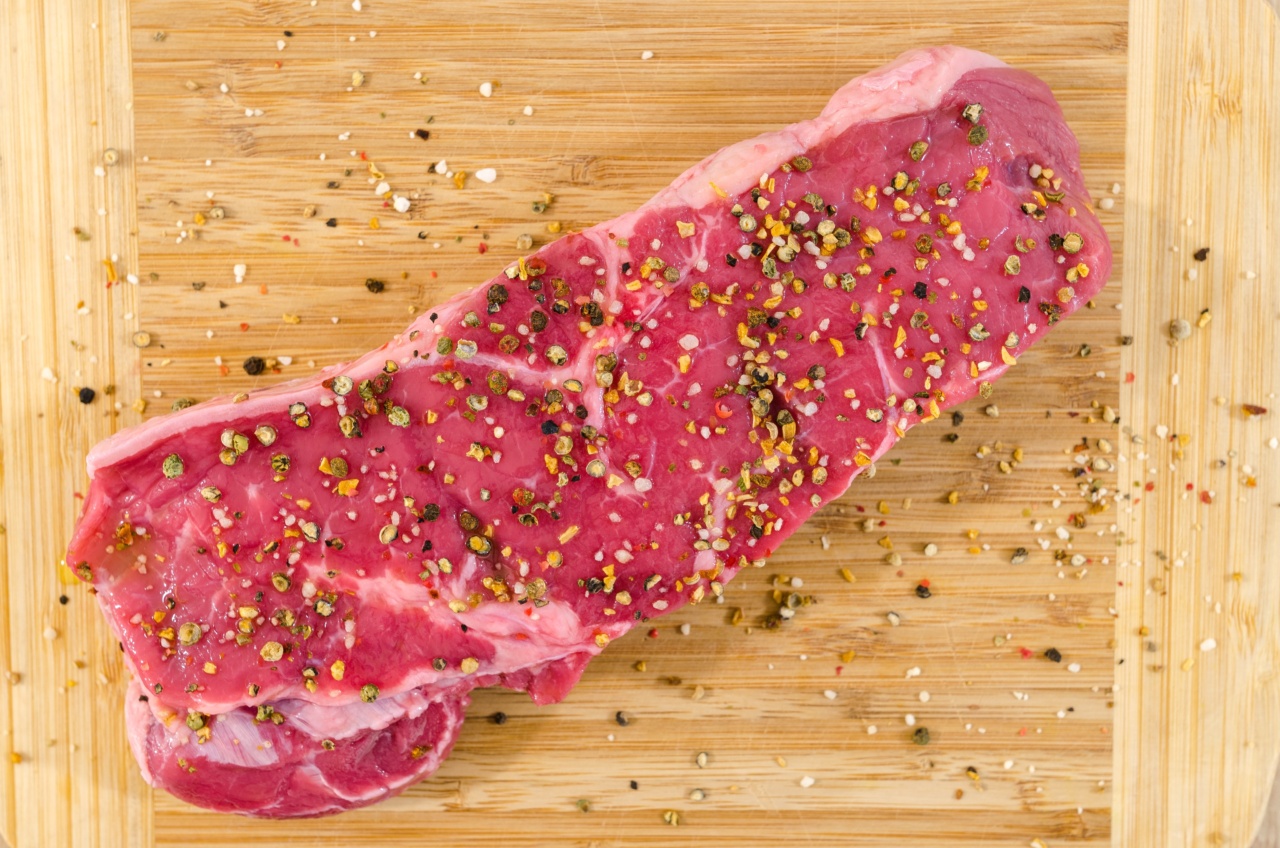Beef is one of the most popular types of meat worldwide. It can be cooked in various ways and can be used as the star ingredient in multiple dishes. However, to get the most out of beef, it is crucial to use the correct cutting and cooking techniques.
This article will cover some of the best ways to cut and cook beef.
Cutting Techniques
One of the most important steps in preparing beef is cutting it correctly. Cutting beef the wrong way can result in tough meat that is unpleasant to eat. Here are some cutting techniques to follow:.
1. Cutting against the grain
When cutting beef, it is essential to cut against the grain. The grain refers to the muscle fibers in the meat. If you cut with the grain, the fibers remain intact, and the meat becomes chewy and tough.
Cutting against the grain, on the other hand, severs the fibers, resulting in tender meat.
2. Slicing
Slicing is the technique of cutting beef into thin, even pieces. Slicing is best used for cuts of meat such as roasts and steaks. To slice beef, start by sharpening your knife.
Then, cut the beef into thin pieces, using a sawing motion rather than a chopping motion. Take care not to press down too hard while slicing as it can result in uneven pieces.
3. Dicing
Dicing beef involves cutting the meat into small, uniform cubes. This technique is commonly used for stews, soups, and kebabs. To dice beef, start by trimming any excess fat. Then, cut the beef into strips, and chop the strips into even cubes.
Use a sharp knife for precise cuts.
Cooking Techniques
After cutting beef, the cooking techniques are crucial in determining the final dish’s texture and flavor. Here are some cooking techniques to consider:.
1. Roasting
Roasting involves cooking meat in an oven, typically at high temperatures. This technique is ideal for large cuts of beef such as roasts. To roast beef, place it in a roasting pan, and season it with salt, pepper, and any other desired spices.
Cook the meat in a preheated oven until it reaches the desired temperature. For medium-rare beef, cook it until the internal temperature reaches 145°F.
2. Grilling
Grilling is another popular cooking technique for beef, especially steaks and kebabs. To grill beef, preheat the grill to high heat. Season the beef with salt, pepper, and any other desired spices.
Place the beef on the grill, and cook it until it reaches the desired level of doneness. For medium-rare beef, cook it for 4-5 minutes per side.
3. Braising
Braising involves cooking beef in a covered pot with liquid. This technique is best used for tougher cuts of beef, as it helps to tenderize the meat. To braise beef, first, season it with salt and pepper. Sear the beef on all sides in a hot pan.
Then, place the beef and any desired vegetables in a pot, add enough liquid to cover the beef, and simmer on low heat until the beef is tender.
4. Stir-Frying
Stir-frying is a technique that involves cooking beef quickly over high heat. It is best used for thin, small cuts of beef such as strips or cubes. To stir-fry beef, heat a little oil in a wok or skillet over high heat.
Add the beef and cook quickly, stirring constantly until it is browned on all sides. Then, add any desired vegetables and sauces and cook until everything is heated through.
Conclusion
In conclusion, cutting and cooking beef correctly is crucial in achieving tender, flavorful meat. Follow the cutting techniques above to ensure that the meat is cut against the grain, sliced or diced correctly.
When cooking, use the appropriate technique such as roasting, grilling, braising, or stir-frying to bring out the meat’s best flavor.































